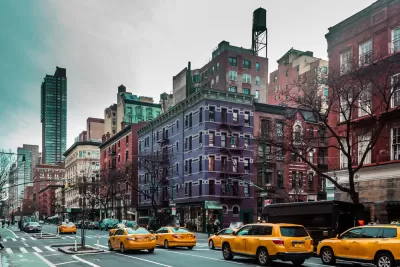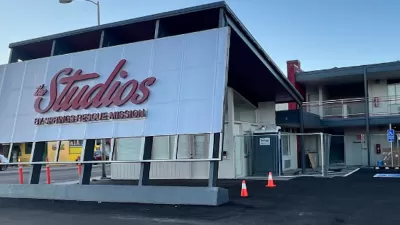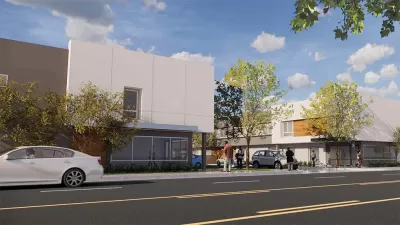The much-vaunted pledge to turn vacant hotel rooms into supportive housing units has failed to materialize as hoteliers see tourism rebound and developers find regulations too onerous and expensive.

New York City’s hotel conversion program continues to yield zero results, more than a year after Mayor Eric Adams promised to create 25,000 new affordable housing units in the city’s vacant hotels. According to an article by Janaki Chadha in Politico, the program has languished in part due to influence from the Hotel Trades Council union.
Despite pledging $200 million to the Housing Our Neighbors with Dignity act, the state and city have failed to gain interest from developers wary of complicated zoning and building codes, Chadha reports. The conversion of smaller hotels to supportive housing can be prohibitively expensive, and less expensive properties may be too far from public transit and other key amenities.
Meanwhile, the union and its supporters argue that keeping hotels open creates economic development and important local jobs. According to Seth Pinsky, former head of the city’s Economic Development Corporation under Mayor Mike Bloomberg, “I do think that eventually, we’re going to have the need again for those hotel rooms. And hotel rooms not only attract visitors, which generates economic activity, but hotels tend to employ people who, in many cases, are otherwise difficult to employ.”
After dropping to 39.1 percent in September 2020, hotel occupancy in the city shot back up to 81.2 percent in the week ending September 3, 2022, signaling a strong return of the tourism sector. “As travelers once again fill the city’s inns, owners are less desperate to offload their properties — particularly for sums that affordable and supportive housing developers can match.”
FULL STORY: Success eludes New York's plan to convert hotels into affordable housing

Planetizen Federal Action Tracker
A weekly monitor of how Trump’s orders and actions are impacting planners and planning in America.

Map: Where Senate Republicans Want to Sell Your Public Lands
For public land advocates, the Senate Republicans’ proposal to sell millions of acres of public land in the West is “the biggest fight of their careers.”

Restaurant Patios Were a Pandemic Win — Why Were They so Hard to Keep?
Social distancing requirements and changes in travel patterns prompted cities to pilot new uses for street and sidewalk space. Then it got complicated.

Platform Pilsner: Vancouver Transit Agency Releases... a Beer?
TransLink will receive a portion of every sale of the four-pack.

Toronto Weighs Cheaper Transit, Parking Hikes for Major Events
Special event rates would take effect during large festivals, sports games and concerts to ‘discourage driving, manage congestion and free up space for transit.”

Berlin to Consider Car-Free Zone Larger Than Manhattan
The area bound by the 22-mile Ringbahn would still allow 12 uses of a private automobile per year per person, and several other exemptions.
Urban Design for Planners 1: Software Tools
This six-course series explores essential urban design concepts using open source software and equips planners with the tools they need to participate fully in the urban design process.
Planning for Universal Design
Learn the tools for implementing Universal Design in planning regulations.
Heyer Gruel & Associates PA
JM Goldson LLC
Custer County Colorado
City of Camden Redevelopment Agency
City of Astoria
Transportation Research & Education Center (TREC) at Portland State University
Camden Redevelopment Agency
City of Claremont
Municipality of Princeton (NJ)





























